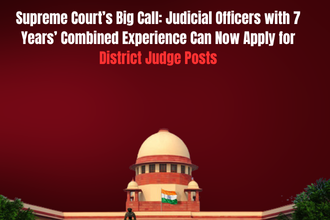In a significant judgment strengthening women’s rights under the Protection of Women from Domestic Violence Act, 2005 (DV Act), the Kerala High Court has held that a wife is entitled to claim maintenance even if she had earlier signed an agreement waiving such rights. Justice A Badharudeen ruled that any agreement seeking to waive a woman’s statutory right to maintenance is invalid as it is against public policy.
This ruling once again underscores the legal position that the statutory duty of a husband to provide maintenance under the DV Act cannot be contracted out or waived through any private arrangement, including divorce settlements.
Background of the Case
The case arose from a petition filed by a woman under Section 20 of the DV Act, seeking various reliefs, including interim maintenance under Section 23. The woman informed the magistrate that she had obtained a divorce in 2018 after enduring persistent demands for dowry, gold, and acts of domestic violence from her former husband. She further stated that she had no independent source of income and sought interim financial support, asserting that her former husband earned over ₹15 lakh per month.
In response, the man contended that the woman had waived her right to maintenance through a notarised agreement dated October 28, 2017, signed as part of the divorce settlement. He further alleged that she operated a yoga centre and earned approximately ₹2 lakh per month.
Despite his objections, the magistrate awarded the woman ₹30,000 per month as interim maintenance. This decision was upheld by the appellate court, prompting the man to challenge it before the Kerala High Court.
High Court’s Observations
Justice A Badharudeen, after reviewing the facts and submissions, ruled that the notarised agreement could not nullify the statutory right of maintenance granted under the DV Act. Importantly, the Court emphasized:
“The legal position is very clear on the point that when an agreement is entered into between the wife and the husband, as part of a compromise filed in Court or otherwise, whereby the wife relinquishes or waives the right to claim maintenance in the future from the husband, such an agreement is opposed to public policy and it does not preclude her from claiming maintenance.”
The Court further observed that the right to maintenance survives even after the decree of divorce, and that obligations under the DV Act ensure continued protection for women who might otherwise be left without support after marriage dissolution.
Invalidity of Waiver of Maintenance
The High Court drew upon earlier Supreme Court and Kerala High Court precedents to reinforce its stand. These precedents hold that a statutory right like maintenance cannot be waived through private agreements because:
- Such agreements are opposed to public policy.
- They undermine the protective purpose of laws like the DV Act.
- They would leave vulnerable women and children without the crucial financial support necessary for a dignified life.
The Court clarified that even if an agreement mentions a waiver of future maintenance, it would have no binding legal effect. The waiver of maintenance would be considered void, and women could still approach courts seeking maintenance despite signing such documents.
Income Dispute and Court’s Findings
The man’s claim that the woman was financially independent and earned ₹2 lakh per month through her yoga centre was also rejected. Both the magistrate and the appellate court found no convincing evidence to support this assertion. Accordingly, the interim maintenance of ₹30,000 per month awarded by the magistrate was deemed reasonable and just.
Justice Badharudeen refused to interfere with the lower courts’ orders, thereby upholding the woman’s entitlement to interim maintenance.
Representation of Parties
- The petitioner (former husband) was represented by Advocates PA Ayub Khan and Niji K Shahul.
- The woman was represented by Advocate Rema Smrithi V K.
- Public Prosecutor Jibu T S appeared for the State.
Key Takeaways from the Kerala High Court’s Judgment
This ruling carries several important legal messages:
- Statutory Rights Cannot Be Waived: A wife’s statutory right to claim maintenance under the DV Act cannot be given up through any private agreements, notarised documents, or settlements.
- Public Policy Prevails: Any agreement attempting to waive a woman’s right to maintenance is considered invalid as it is opposed to public policy.
- Maintenance Continues Post-Divorce: The right to claim maintenance under the DV Act survives even after a divorce decree, offering critical financial support for women in vulnerable positions.
- Court’s Focus on Evidence: Mere allegations about the financial independence of the claimant (wife) must be backed by credible evidence; otherwise, courts are unlikely to deny maintenance.
- Protection for Vulnerable Women: The judiciary continues to adopt a pro-woman interpretation of the DV Act to ensure that its protective spirit is not diluted.
Conclusion
The Kerala High Court’s decision serves as a critical reminder that women’s rights under the Protection of Women from Domestic Violence Act, 2005, are inalienable and protected by law. Even where settlements or private agreements are signed during divorce proceedings, the woman’s right to claim maintenance remains intact.
This progressive interpretation ensures that women are not left without recourse and financial support due to coerced, uninformed, or unequal agreements entered into during emotionally vulnerable phases like divorce.
The judgment is a significant step in protecting the financial rights of divorced and separated women, reinforcing the broader aim of social justice and gender equality envisioned under Indian law.


